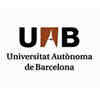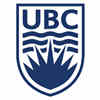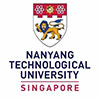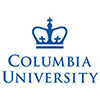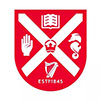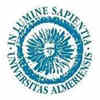英国The Francis Crick Institute博士后职位
英国The Francis Crick Institute博士后职位
Job title: Postdoctoral Training Fellow – Signalling and Transcription Laboratory
Location: The Francis Crick Institute, Midland Road, London
Contract: Fixed-term, 4 years
Full time
Salary: Competitive with benefits, subject to skills and experience
Vacancy ID: 12667
Short summary
The Treisman lab is looking for highly motivated, bright and creative, and skilled postdoc with experience in gene regulation, signalling and biochemistry. The project will investigate how transcriptional activation by the MRTF transcriptional coactivators is controlled by their interaction with G-actin in different settings.
The labs main interests are (i) the transcription factor SRF, its MRTF and TCF cofactors, and their control by signals; and (ii) RPEL proteins, the targets and biological roles of the Rho-actin signalling pathway, with a focus on its roles in cell motility, cancer and immunity. The group uses a multidisciplinary approach, involving biochemistry, structural biology, cell biology and genomics, and uses tissue culture and mouse cancer and immune models.
The group usually comprises 2-3 postdoctoral research fellows and 2-3 graduate students, supported by 3 postdoctoral level research assistants. For more information about this research, please visit the external lab website: https://www.crick.ac.uk/research/a-z-researchers/researchers-t-u/richard-treisman/
The successful applicant will be expert in gene expression analysis and/or biochemistry and cell biology. S/he will have excellent organisational and commication skills and a PhD in a relevant area (or be at the final stages of PhD completion).
The Project – MRTF-SRF signalling in cancer and motility
Work in the Signalling and Transcription group focusses on the SRF transcription factor network, a major nuclear targets of Rho and Ras signalling, two major signalling pathways involved in oncogenic transformation, invasion and metastasis. Our main interest is how SRF and its two cofactor families, the TCFs and the MRTFs, are controlled by Ras-ERK and Rho-actin signalling, and the signif, respectively (Olson and Nordheim, Nat Rev Mol Cell Biol 2010; Posern and Treisman, TIBS 2006). We use a multidisciplinary approach, involving the biochemistry, structural biology, cell biology and genomics, applied to both tissue culture and mouse cancer and immune models.
Our current interests cover two areas: the role played by G-actin in regulating the MRTFs, and the relationship between TCF and MRTF activation and signal-induced chromatin modifications. We previously have defined the direct genomic targets for the SRF, and shown that Rho-actin signalling is a major contributor to the fibroblast growth factor response (Esnault et al., Genes Dev 2014). We characterised the kinetics of ERK-induced TCF phosphorylation (Mylona et al., Science 2016). We evaluated the contribution of the TCFs to the transcriptional and chromatin response to response to ERK activation, showing that their activation is required for histone modifications at the TSS (Esnault et al., Mol. Cell 2017). We also showed that the TCFs compete with the MRTFs for access to SRF, and that this determines the cell contractile response (Gualdrini et al., Mol. Cell 2016). Finally we have examined the relationship between MRTF/SRF signalling and the YAP/TEAD pathway, showing that the two pathways are mutually dependent (Foster et al., Genes Dev. 2017).
We are particularly interested in the molecular mechanisms controlling MRTF activation, particularly the role played by G-actin, the relationship between MRTF phosphorylation and transcriptional activation, and how MRTF/SRF regulation controls the cellular response to growth factor and mechanical stimuli. Control of MRTF subcellular localisation is a major mechanism by which MRTF activity is regulated by G-actin (Miralles et al., Cell 2003). Our previous studies have shown that nuclear G-actin suppresses MRTF target gene transcription (Vartiainen et al., Science 2007).
Our recent data shows that this involves control both of MRTF-SRF interaction and gene targeting, and RNA polymerase II recruitment and initiation, and using biochemical and genomic approaches to elucidate the molecular mechanisms involved. A second area of interest concerns the relationship between signalling to the MRTFs and chromatin modifications at their target genes. Here we will establish the modifiers involved, the role played by the modifications in facilitating transcription, and their relation to chromatin modifications induced by the TCF proteins. Finally, we are interested in elucidating how external environment determines the subcellular location of the MRTFs under resting conditions, and how MRTF/SRF signalling is linked to the effects of tissue mechanics on stem cell differentiation and the pro-tumorigenic activity of cancer associated fibroblasts.
Postdoctoral Training Fellows are expected to lead their own projects, contribute to other projects on a collaborative basis (both in the lab and with external collaborators) and guide PhD students in their research. The ability to work in a team is essential.
About the Crick
The Francis Crick Institute is a biomedical discovery institute dedicated to understanding the fundamental biology underlying health and disease. Its work is helping to understand why disease develops and to translate discoveries into new ways to prevent, diagnose and treat illnesses such as cancer, heart disease, stroke, infections, and neurodegenerative diseases.
An independent organisation, its founding partners are the Medical Research Council (MRC), Cancer Research UK, Wellcome, UCL (University College London), Imperial College London and King’s College London.
The Crick was formed in 2015, and in 2016 it moved into a new state-of-the-art building in central London which brings together 1500 scientists and support staff working collaboratively across disciplines, making it the biggest biomedical research facility under in one building in Europe.
The Francis Crick Institute will be world-class with a strong national role. Its distinctive vision for excellence includes commitments to collaboration; developing emerging talent and exporting it the rest of the UK; public engagement; and helping turn discoveries into treatments as quickly as possible to improve lives and strengthen the economy.
· If you are interested in applying for this position, please apply via our website.
· The closing date for applications is 08 December 2019 at 23:45.
· All offers of employment are subject to successful security screening and continuous eligibility to work in the United Kingdom.







